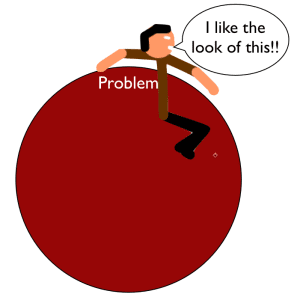Apparently at some time in our life one in four of us will encounter some kind of mental illness. Does that mean that one in four of us will end up in a straightjacket? Well, not in every case, thankfully no. Mostly mental illnesses can be cured before they become a major problem using a talking therapy. We are going to discuss why these talking therapies work.
Talking therapies are services like coaching, counselling, hypnotherapy, cognitive behavioural therapy, Gestalt therapy and NLP. The therapy usually involves a series of one to one sessions where the ‘patient’ talks through their problem with a trained professional.
How would you describe your state of mind right now? Happy, miserable, bored, joyous, energised? We tend to all move in and out of various states of mind throughout the day. Our state of mind is normally determined by how we are currently interpreting our life situation. If we are talking to someone that we do not like, then we may not be in as productive a state of mind as we would be if we were talking to someone we are in love with. If we are about to do a presentation to a large audience we may be in a nervous state of mind because that is brought about by our mind interpreting the event to come.
 Thankfully most of these perceived negative life situations are temporary and we move out of our negative state of mind into a positive one, say for example after we have successfully completed our presentation.
Thankfully most of these perceived negative life situations are temporary and we move out of our negative state of mind into a positive one, say for example after we have successfully completed our presentation.
Mental illnesses are brought about for many of us by our mind getting in the habit of being in a negative. If our life situation in general is perceived by our mind as being negative, then our mind will develop this habit of being in a bad mood.
For example, if we lose a loved one, then we might believe that everything about our current life situation is bad. Until we are able to see things other than this dreadful event, then our mind will perceive everything as being bad and we will be continuously in a negative state of mind. This negative thinking then becomes a habit, and can result in chemical reactions taking place in the body, which leads to depression.
Similarly if we lose our job and we imagine running out of money, then this might be perceived by our mind as being extremely negative and our moods will reflect this perceived negative life situation.
If we are in a difficult relationship and we constantly feel surrounded by this relationship and unable to leave it, then again it can become a perceived all encompassing negative life situation, that can lead to constant negative moods and a mental illness.
All of us have bad moods, all of us have negative thoughts and negative states of mind but some of of have more than others and if it becomes a habit, then mental illness can result.
So, how can talking to someone help?
The fact is that we label our life situations with the language that we use. Eg “horrendous” “depressing” “awful” “distressing” “I am unhappy” “I am depressed” etc. As soon as we label our life in this way, then we have put a boundary around the problem. “I am unhappy” is a hugely negative boundary that someone can put around their life situation. Is that all that they are? Well obviously not, but as long as they label themselves in this way it is easy for someone to believe that this is all that they are in their life, unhappy.
How would you label yourself in you life right now? Fill in the gap in this statement “I am ….” Is it positive or negative? These are the boundaries that you have put around your life and you have labelled them with words.
When we have problems in life we sometimes become consumed by them, don’t we? Running the situation back and forth in our mind. This in itself can put us in a bad mood, and it is difficult to break away from this until we are able to see outside of the problem.
People who are depressed sometimes find it impossible to believe that they can be anything other than “depressed.” What a horrible boundary to have around your problem, and it is held in place by the language that we use.
The idea of talking therapies is that the therapist enables us through talking about our problem to see that we are not just eg “depressed” and that there are other things that we are as well. This enables us to see outside of the problem and it also enables us to break the boundaries of the problem by seeing outside of it. Over a period of time of talking and as we lose the labels that we have given our problem our mind also realises that we are able to have some thoughts other than negative ones, and we create new thought patterns, new habits of thinking.
If you have what you consider to be a mental illness then please see your GP in the first instance and they will refer you to a specialist to suit your needs.
If you are interested in learning more about helping yourself and helping others through coaching or NLP then our NLP Training specifically enables people to be control of their thinking and to create better choices for themselves. Through NLP training people can overcome their own mental difficulties and even go on to help others with theirs.
